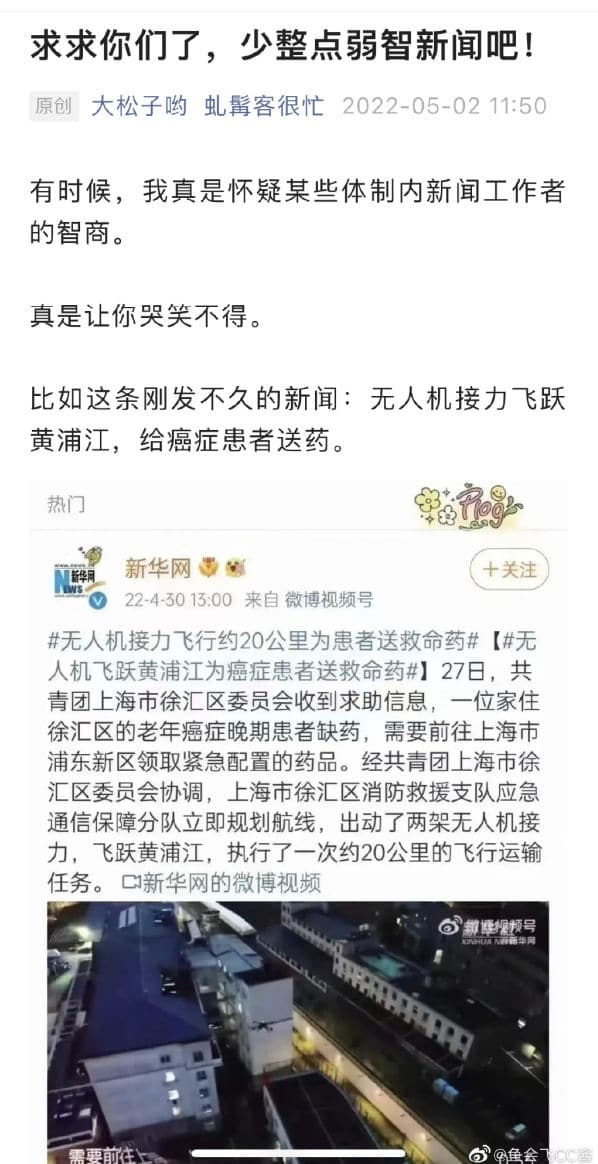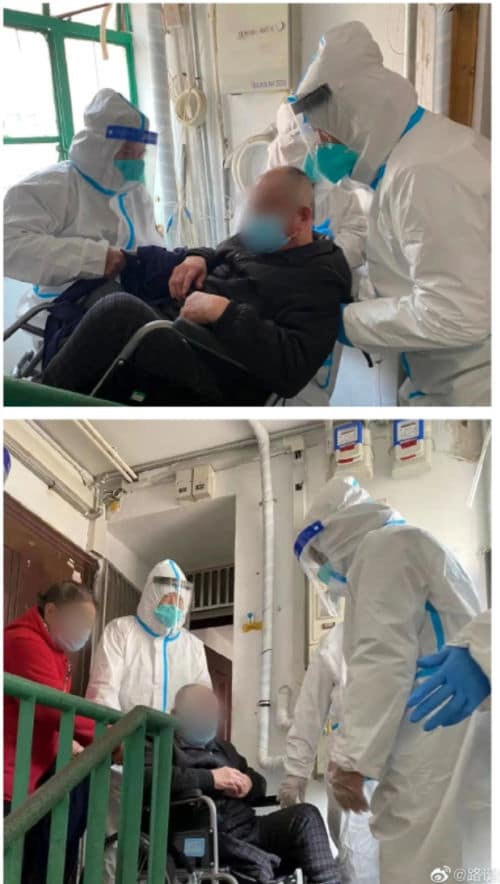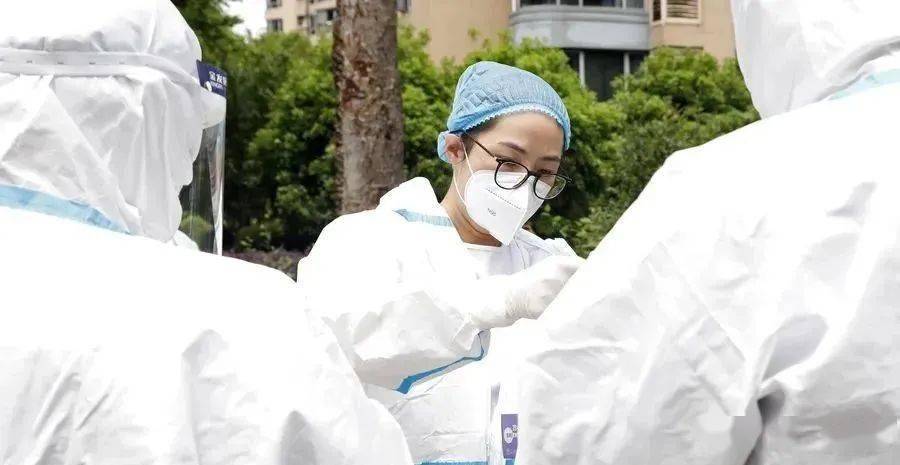This week, a WeChat article criticizing ‘uplifting’ news about Shanghai’s Covid situation has been making its rounds on Chinese social media.
“Sometimes, I really doubt the intelligence of some institutionalized journalists, I really don’t know whether to laugh or cry about it,” the author (大松子哟) of the Wechat article titled “Please Guys, Give Us Less Retarded News” (“求求你们了,少整点弱智新闻吧“) writes.

One of the recent news stories that is mentioned as an example of Shanghai blowing its own horn while also dumbing down news readers, is that of state media outlet Xinhua News about a drone flying over the Huangpu River to deliver priority life-saving medication to a cancer patient.
According to the state media report, the Shanghai local Committee of the Communist Youth League in Xuhui District received a help inquiry on April 27th from an elderly patient with advanced liver cancer who needed their emergency medicine from Shanghai’s Pudong District.
With the help of the fire and emergency department, the Committee immediately arranged for two drones to go on a mission over the Huangpu River to pick up and deliver the medicine, a journey of about 20 kilometers. The mission was reportedly accomplished in thirty minutes and the entire ordeal was filmed by the second drone for a Xinhua video.
So some officials went through an awful lot of trouble to get medications to a cancer patient in Shanghai, with two drones crossing the Huangpu River and flying 20 km to deliver them. But netizens aren't buying it: "They could've just delivered them by car. There is no traffic." pic.twitter.com/OXKTIZnTTu
— Manya Koetse (@manyapan) May 4, 2022
“Such positivity,” one popular blogger wrote: “But what about just putting these medications in a car for transportation – they won’t go bad, and there are no traffic jams in Shanghai now. Transportation by car is a bit safer than flying them over the Huangpu river don’t you think?”
Another Weibo user wrote: “Shanghai bridges aren’t bombed, are they? The tunnels aren’t blocked, are they? Couldn’t the firemen just drive a car and deliver the medicine?” The idea that the two drones needed to fly out because the bridges and tunnels were bombed or blocked then became somewhat of a running joke on Weibo.
“This is all just to fit the propaganda messages, did you think people are stupid or something?” others wrote, with many commenters repeating the sentence: “I don’t know whether to laugh or cry about it.”
“I’m laughing so hard over this, all this trouble with a drone delivering medication and then another drone following it to film it, they’re making things so difficult.”
Following online criticism, a hashtag page related to the news was temporarily disabled and later only eight comments praising the video were displayed below the Xinhua thread, which actually received nearly 5000 replies.
Grateful Sick Man in Wheelchair
Another example raised is a news story about an elderly sick man with an amputated leg living on the fourth floor of an apartment building (without elevators) who had to go downstairs for a mandatory Covid test. Unable to leave his apartment by himself, the old man was helped by five anti-epidemic workers who carried him all the way down in his wheelchair.
According to the original news report, the old man was moved and thanked the workers for helping him get downstairs.

“Wouldn’t it have been easier to bring the test upstairs?” many people wondered. “Wasn’t the news editor a bit entertained about this news himself?”
Others also wondered how and if the man in the wheelchair ever got back to his fourth-floor apartment again.
“So you think it’s not a good idea for one person to go to the house to do the nucleic acid test, but you do think it looks good for five people to carry the old man down with a wheelchair and take pictures of it?” the WeChat article author wrote: “And he was moved and actually thanked you? Are you sure he didn’t call you idiots?”
The blogger also wrote: “I understand the goal of these kinds of articles is to express positivity and to convey a feeling of urgency that ‘every second counts,’ but could you please also take our IQ into considering when setting the atmosphere?”
Adding: “I once heard a story as a kid about an Arab who had won a camel at a competition. When he got home, he wanted to slaughter the camel but discovered his knife was on the third floor, so he asked three of his neighbors to help him get the camel up to the third floor…” I always thought this story was just fabricated, but now I’ve come to realize I was just too naive.”
A Life or Death Mission
Another news story mentioned was originally published by Jiefang Daily (解放日报), the official daily newspaper of the Shanghai Committee of the Chinese Communist Party. It is a personal narrative of a Shanghai official who is going back to work ‘in the field’ for the first time in a decade.
This is how the story begins:
“On the evening of April 12, close to 10pm, I received a call from my unit that I would be part of a team of ten people as the first batch of cadres to get into the village. Actually, I felt afraid, I didn’t know what the situation would be like in the place where we were heading. What challenges would we face? Also, I have two sons in junior high school, I always help them in their schoolwork, I worried their studies would be delayed.”
“I told my sons to go up to the attic to get the biggest suitcase. They were stupefied, asking me: ‘Mum, how long will you be gone for? Why do you need such a big suitcase?’ I told them: ‘You can never be over-prepared. I don’t exactly know how long.’ I could see the panic in their eyes.”
“The next day, when my sons carried my luggage to the car, I turned around and hugged them both. I had never been so sad to part with them, and tears started welling up in my eyes. I held myself back and told myself: ‘You can’t cry, you need to be a good role model for your sons, when facing a catastrophe someone must stand up and bravely step forward. Besides, I’m not the one who is suffering the most – if others can do it, so can I.”

The WeChat blogger responds to the news article, writing: “I first thought the protagonist was leaving their family to go abroad for some secret all or nothing mission, moving heaven and heart, between life and death,.. but then I read on and, oh, my dear, it turns out to be an official who’s going to work at a neighborhood committee!”
The author criticizes the article for presenting the work of a local cadre at a neighborhood committee – doing simple work such as scanning QR codes and collecting PCR tests – as some life or death mission.
“Where does this kind of ‘self-moving’ [‘自我感动’, like stroking one’s own ego] come from? Isn’t it embarrassing?”
Meanwhile, on Weibo, the banter continues: “I remember someone saying that the person in charge of the Shanghai propaganda line came back from North Korea.”
This is not the first time that this kind of ‘positive’ reporting in times of Covid is deemed out of place and exaggerated.
In February 2020, Chinese media reports praised female nurses as true heroes for having their heads shaved before going to Wuhan to help in the fight against Covid-19. The reports and videos showed some women crying while having their hair completely shaved, and the media segment caused anger among Weibo and Wechat users who thought it was all about propaganda.

Gansu Daily report on women having their head shaved in preparation of their Wuhan mission, February 2020.
Many wondered why the women needed to shave off all of their hair while male nurses could keep their hair. Some experts chiming in claimed that having a bald head would not be helpful in the fight against the virus, as (short) hair also has a protective function, reduces irritation from wearing hats and masks, and prevents sweat from dropping into the eyes.
More recently, a CCTV video report on the situation in Shanghai went viral on WeChat after people thought the part showing a supposed Shanghai supermarket was “too fake,” with many suggesting it was filmed inside a film studio instead of inside an actual Shanghai supermarket in times of lockdown and grocery problems.

Afterward, a video made by social media users edited a Joker Xue song into the state media video, in which he sings about a relationship in which one person is faking it and the other just plays along and pretends not to notice for the sake of their relationship.
Official media then reported that the supermarket scenes were “authentic.” The very fact that state media outlets apparently felt the need to convince netizens that the state news program was legitimate, instead of being staged as some netizens suspected, says a lot about the current relationship between state media and Chinese netizens amid tensions surrounding the situation in Shanghai.
“These kind of news reports are an insult to my brain,” one commenter wrote.
For more articles on the Covid-19 topics on Chinese social media, check here.
By Manya Koetse, with contributions by Miranda Barnes
Get the story behind the hashtag. Subscribe to What’s on Weibo here to receive our weekly newsletter and get access to our latest articles:
Spotted a mistake or want to add something? Please let us know in comments below or email us. First-time commenters, please be patient – we will have to manually approve your comment before it appears.
©2022 Whatsonweibo. All rights reserved. Do not reproduce our content without permission – you can contact us at info@whatsonweibo.com.
The post Chinese Netizens Respond to ‘Uplifting’ Covid News: “We’re Not That Dumb” appeared first on What's on Weibo.